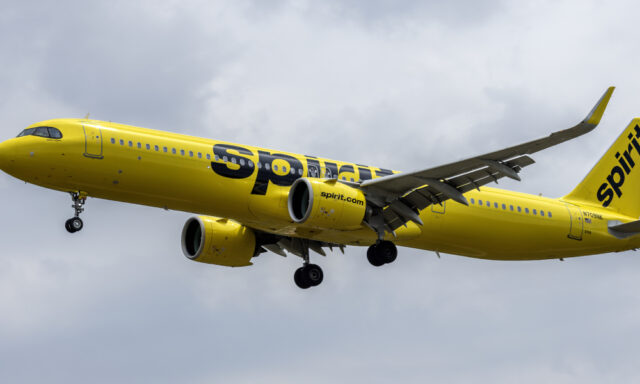WASHINGTON: A U.S. bankruptcy judge approved Spirit Airlines’ restructuring, allowing the airline to convert $795 million in debt to equity.
The decision helps Spirit Airlines exit bankruptcy as a privately owned company.
Judge Sean Lane granted approval at a court hearing in White Plains, New York.
Spirit’s plan cancels existing shares and transfers ownership to its lenders.
These lenders include Pacific Investment Management Company, UBS Asset Management, and Citadel Advisors.
New Financing
Spirit plans to raise $350 million through selling new equity shares.
Spirit Airlines CEO Ted Christie said the restructuring will strengthen the airline financially.
He added that the company will continue offering affordable and improved travel services.
Spirit rejected a takeover proposal from budget airline Frontier Group.
Rejected Offer
Spirit stated that Frontier’s offer provided less value to creditors.
Frontier’s proposal allowed Spirit to retain 19% ownership of the company.
However, Spirit believed the deal involved additional financial burdens and risks.
It argued that staying in bankruptcy longer would increase costs.
The airline also feared regulators would block a merger with Frontier.
Legal Concerns
Judge Lane overruled objections from the U.S. Securities and Exchange Commission (SEC).
The U.S. Trustee, the Justice Department’s bankruptcy watchdog, also opposed parts of the plan.
Both agencies objected to how Spirit’s plan handled shareholder and creditor claims.
They argued that Spirit improperly assumed creditor consent unless they opted out.
Judge Lane stated he would issue a written ruling rejecting those concerns.
Future Plans
Spirit Airlines will move forward under new ownership after restructuring.
The airline aims to stabilize operations and improve financial health.
The decision allows Spirit to focus on expanding services for travelers.
By converting debt into equity, the airline avoids liquidation.
Spirit continues operating flights while completing its bankruptcy exit process.
Regulatory Issues
Spirit’s restructuring plan required approval from multiple agencies.
The SEC and U.S. Trustee challenged its handling of creditor claims.
Spirit’s lenders gained ownership, replacing previous shareholders.
This shift aimed to ensure financial recovery and future stability.
Spirit’s bankruptcy plan was deemed the best solution for creditors.
Financial Flexibility
With reduced debt, Spirit will have more financial flexibility.
The airline will focus on operational improvements and cost reductions.
It remains committed to offering budget-friendly travel options.
Spirit believes this plan is better than merging with Frontier.
The company is optimistic about its financial future after restructuring.
Market Impact
Spirit’s decision affects the competitive landscape of budget airlines.
Rejecting Frontier’s offer keeps Spirit independent.
Investors and creditors closely watch Spirit’s financial recovery.
The airline’s leadership remains confident in its restructuring strategy.
This decision could influence future airline bankruptcy cases.
Path Forward
Spirit continues to operate while finalizing its bankruptcy exit.
New ownership and financial backing will support its long-term success.
Customers can expect uninterrupted services during the transition.
The restructuring positions Spirit for sustainable future growth.
The airline expects to officially exit bankruptcy in early 2025.











